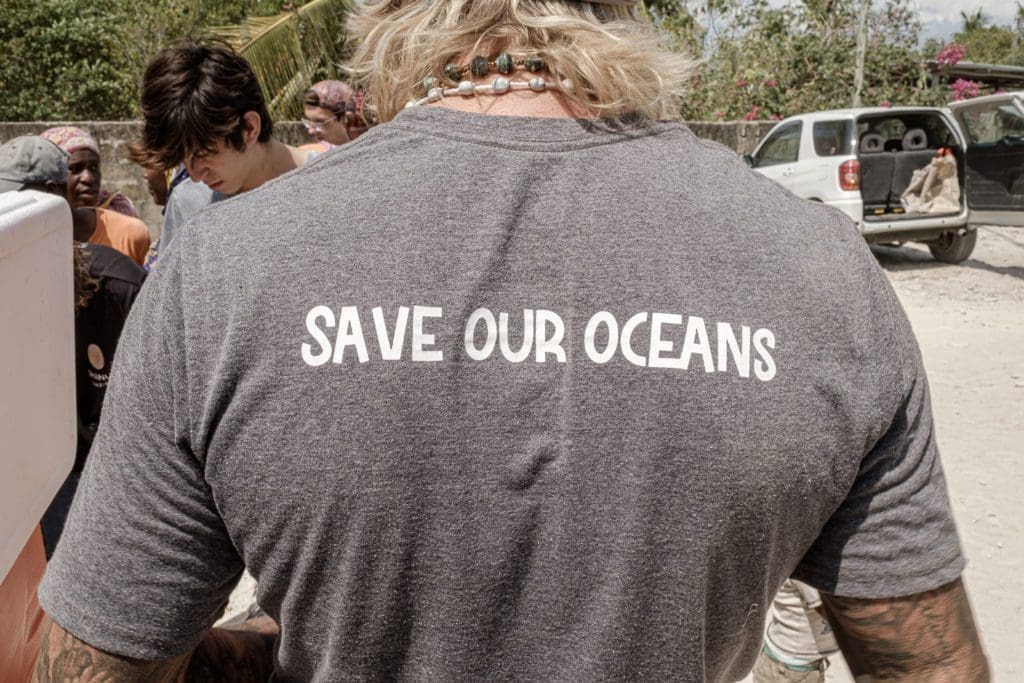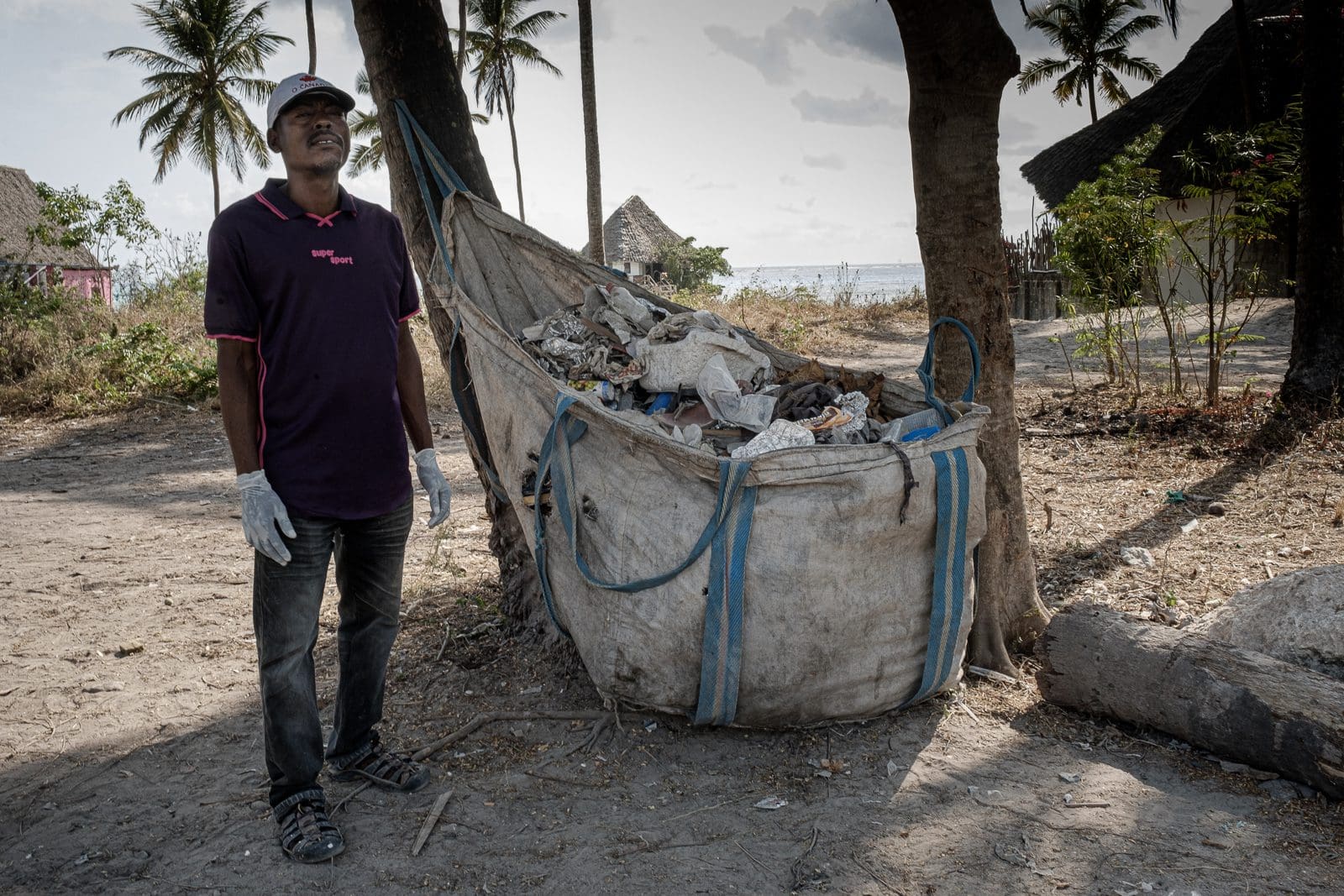The meeting point is in Jambiani, near the beach. We meet around 7:30 in the morning. The sun is already high and the heat is beginning to set in. The days here are evenly divided into two parts: light and dark, hot and windy, the crows cawing by day and the gentle lapping of the waves on the beach at night. Our contact’s name is Sean Williams. South African, he has been living in Jambiani for five months with his family. Tall, blond, and tattooed, Sean has a mission: to clean the world of plastic, and he has decided to start right here in Zanzibar. For today, in fact, he has organized a cleanup (a term in vogue for the past few years to refer to waste collection done by the inhabitants of a place) in Michanwi, a cluster of houses about twenty minutes from Jambiani.
The problem of plastic and waste in general – Sean tells us as we head north – is cultural as well as organizational. People are not used to throwing their taka taka (rubbish) in the bins because there are not always bins to collect it, especially in the villages – hotels and other accommodations follow a different procedure. Attention to plastic and rubbish is theoretically high here. For example, since 2019, there is a ban on plastic bags in Tanzania to limit their dispersion into the environment – in the markets, groceries are stuffed into reusable paper bags. But there is still something missing in the overall picture.
Sean organizes these cleanups regularly, especially in Jambiani and surrounding communities. We meet early in the morning to work a few hours before the temperatures become prohibitive. The aim is to collect from the streets as much rubbish as possible and place it in what is known as polo, large containers placed at strategic points which are then emptied by the rubbish collection company. You never know how many people are going to take part: it can be a bunch of them or many, as happened today in Michanwi. Here Sean managed to involve several local schools and the staff of different hotels and restaurants, among them The Rock Restaurant and Baladin Zanzibar. We spent a couple of hours together cleaning the white streets of the village, filling several polos before the scorching sun told us our time was over. The cleanup ended with water and fresh fruit for everyone.
Sean’s activities are not limited to cleanups. In Jambiani he has set up a Community Centre where he and his wife teach English to local children for free. At the same time, in another room, a local tailor sews bags and small cases from the cement packages recovered during the cleanups. Besides, Sean has installed several collection points for taka taka in Jambiani, separating it from the plastic that can be recycled.
What strikes you about Sean when you get to know him is his charisma and the passion that fuels this mission of his. “I’m doing this for the future, for those who will inhabit our world, for my children of course, but also for the children of all of us. We all have a chance to do something, even a small thing, to change our Planet for the better,” he told us. And every day, every cleanup, every time he goes to speak in schools Sean starts over because the process is slow, pole pole as they say here when you mean something needs time to be done.



